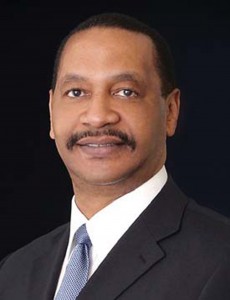The average american household wastes up to 61 percent of its energy input.
Kevin Williams, CEO of WillCo Technologies, said that this is because of the way electrical grids are designed. Although the average consumer requires significantly less power during school and work hours, the grid keeps energy limits consistently high in order to sustain through peak activity hours. This could lead to pricy electricity bills.
Believing that this technology was outdated, in 2009 Williams began to take an interest in the emerging smart grid. He knew there must be a way to capture that wasted energy and store it, despite doubts from respected peers.
“They told me that it’s not feasible to capture electricity and store it later,” Williams said. “‘It’s just not possible, Kevin. You’re wasting your time.’
Williams continued to pursue his mission by creating an energy storage device — all the while growing WillCo technologies, his IT consulting firm, which was founded in 2006.
The energy device solution, developed in partnership with the Missouri University of Science and Technology, was funded entirely by WillCo’s software consulting profits.
“As CEO, I could have used the money to go on vacation, or pay for my retirement,” Williams added. “I chose to invest in this early technology because that’s what gets me excited. I felt like I could have a part in changing the way Americans consume electricity.”
Williams first filed for a patent for the device in 2010 and after several iterations resubmitted it in 2012. His critics were skeptical, although a few years later they’d change their tune.
In 2015, Tesla launched the Powerwall, proving to Williams’ naysayers that large-scale energy storage was officially a reality. Williams recalled being flooded with emails of people who were apologizing for doubting him. The emerging smart grid industry is now projected to reach $19 billion by 2017.
“It felt very gratifying,” Williams said. “It let me know that the work I had been working on was not in vain.
The momentum propelled Williams forward while he waited for word on his patent. In the meantime, Williams launched WISE — WillCo Intelligent Stored Energy — in May 2016. Only one month later, Williams and his company were awarded a patent for his energy device: the WISE P.O.D.
“I want to be a part of what I believe is a technological revolution that we could really foster here in Kansas City.” – Kevin Williams
The system allows for communications between utility companies and the consumer as well as offers real-time electricity usage data. Using Internet-of-Things software, users can direct the flow of electricity with their smart phones and store energy from the grid to reduce consumption.
To use the device, WISE customers first go online and take an energy assessment to receive an estimate. If the household purchases the hardware, WISE then links the customer up with a reseller in their area who will then contact them to arrange the installation.
Williams is currently looking for a new headquarters to house both WillCo Technologies and WISE to accommodate ambitious hiring plans. Currently with a team of nine people, WillCo plans to expand with 30 additional positions, thanks to a new contract with the U.S. Department of Defense. And by 2017, Williams expects WISE to add about 60 new jobs in the area.
Despite receiving interest from outside investors, Williams said he plans to remain in the Kansas City area.
“I’m looking forward to taking advantage of this synergy that’s happening here in the Kansas City area,” Williams said. “I want to be a part of what I believe is a technological revolution that we could really foster here in Kansas City.”







































